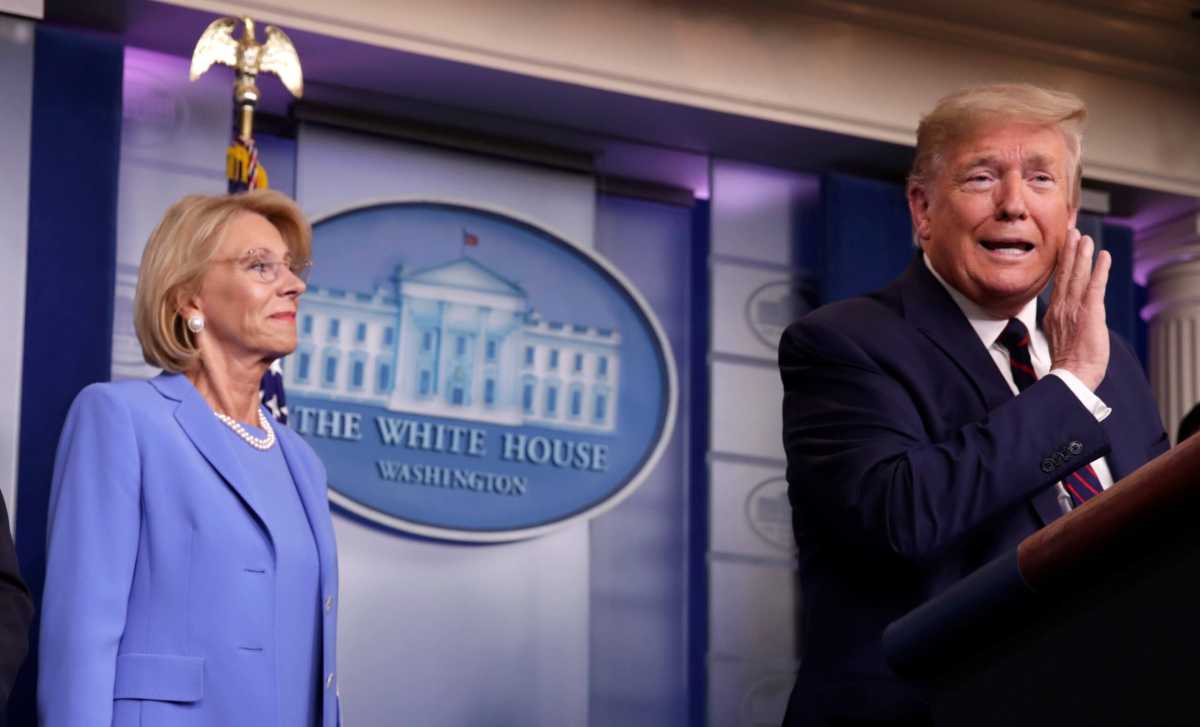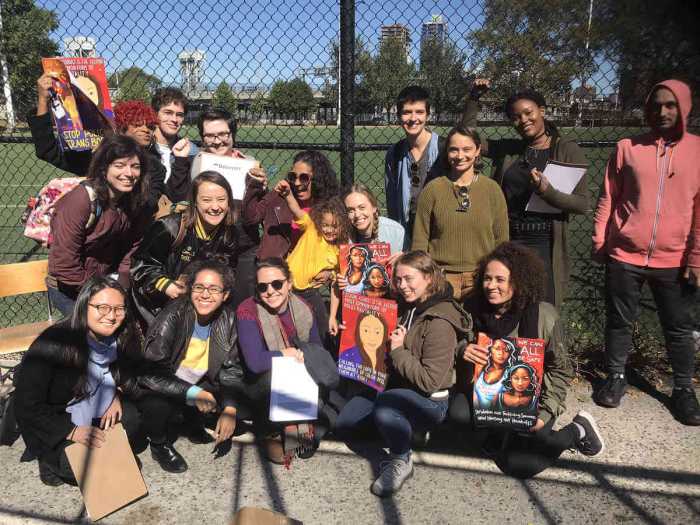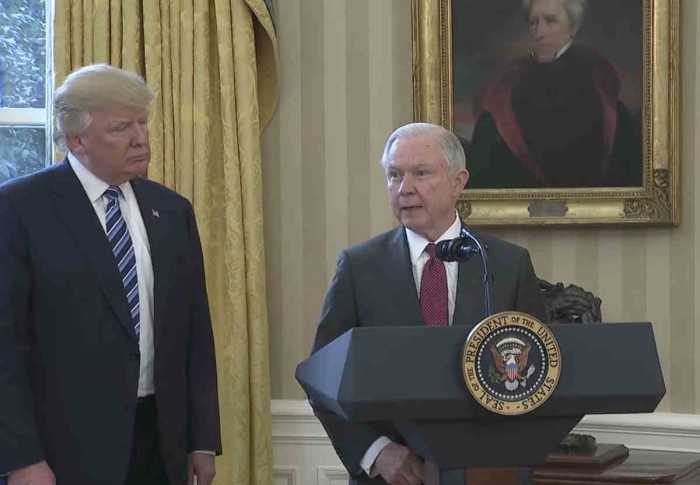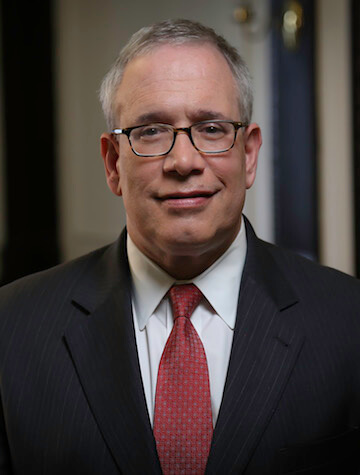In a move that will impact academic institutions ranging from K-12 to colleges and universities, the Trump administration’s Department of Education finalized forthcoming regulations gutting Title IX protections for student victims of sexual assault, loosening requirements to investigate such cases, and extending special privileges to those seeking religious exemptions.
The final rule, proposed in November of 2018 and slated to go into effect this coming August, was blasted by advocates who warned that the change will be detrimental to queer students and further contribute to President Donald Trump’s ongoing campaign to satisfy the religious right while eradicating gains made during the Obama administration to strengthen sexual assault measures in education.
The administration hailed the regulations as a way to “restore due process,” and officials produced an accompanying fact sheet arguing that “bureaucracy created in our nation’s institutions of higher education have often stacked the deck against the accused, failing to offer protections such as a presumption of innocence or adequate ability to rebut allegations.”
But the regulations could disproportionately impact vulnerable LGBTQ students, especially transgender students who face greater rates of sexual harassment and assault. The rule follows a pattern dating back to the early days of the administration in 2017 when Education Secretary Betsy DeVos rolled back the Office for Civil Rights’ investigations of discrimination cases targeting LGBTQ students. The following year, the department stopped probing complaints lodged by trans students unable to use the bathroom corresponding with their gender identity.
Now DeVos is back, armed with her chisel, carving away at crucial protections in the landmark Title IX law that bans sex discrimination in federally-funded academic and athletic programs.
The latest rules shrink the scope of the definition of sexual assault and stipulates that such complaints are only required to be considered for review if they are reported to certain school officials, contrary to previous regulations that allowed students to report to a wider pool of authority figures.
Furthermore, a school will only be considered to be in violation of Title IX if it is found to have been “deliberately indifferent” to allegations of sexual assault in its programs. Accusers are also now required to convey their allegations in live hearings.
“This new regulation requires schools to act in meaningful ways to support survivors of sexual misconduct, without sacrificing important safeguards to ensure a fair and transparent process,” DeVos said in a written statement that obscured the reality of the changes.
The 2,033-page document detailing the new regulations also goes to great lengths to downplay comments issued by individuals worried that changes would hurt LGBTQ students.
“The Department disagrees that changing the status quo approach to Title IX will negatively impact women, children, students of color, or LGBTQ individuals, because the final regulations define the scope of Title IX and recipients’ legal obligations under Title IX without regard to the race, ethnicity, sexual orientation, age, or other characteristic of a person,” the administration noted in the document.
But the administration, as it has tended to do in proposed regulations across other federal agencies during the Trump era, also delved into discussions about the definition. The administration claimed that “the department does not define ‘sex’ in these final regulations” but prefaced that with an explainer paragraph defending conservative beliefs about the definition of sex.
Regarding a commenter’s assertion that Title IX “prohibits sex stereotyping that underlies discrimination against LGBTQ individuals,” the administration noted “that some of the cases the commenter cited are cases under Title VII and are on appeal before the Supreme Court of the United States,” referring to the imminent decisions regarding whether sexual orientation and gender identity are protected classes under the Title VII employment nondiscrimination protections of the 1964 Civil Rights Act.
The document continued, “The most recent position of the United States in these cases is that the ordinary public meaning of ‘sex’ at the time of Title VII’s passage was biological sex and thus the appropriate construction of the word ‘sex’ does not extend to a person’s sexual orientation or transgender status, and that discrimination based on transgender status does not constitute sex stereotyping but a transgender plaintiff may use sex stereotyping as evidence to prove a sex discrimination claim if members of one sex (e.g., males) are treated less favorably than members of the other sex (e.g., females).” That construction on sex discrimination, often used by those defending against charges of gender identity discrimination, would largely preclude discrimination complaints by transgender students.
And while the administration’s regulations force accusers to use full transparency in live hearings, that transparency is not expected when it comes to religion. The administration is giving religious groups further leeway to claim an unexplained exemption.
The document said the new regulations “eliminate the requirement that religious institutions submit a written statement to the Assistant Secretary for Civil Rights to qualify for the Title IX religious exemption.”
“The Department does not require recipients to publish any exemptions from Title IX… that may apply to the recipient and does not wish to single out the religious exemption for special or different treatment,” the document noted. “The Department believes that the requirements in these final regulations provide sufficient transparency.”
The National Center for Transgender Equality (NCTE), which issued broad warnings about the incoming effects the regulations could have on trans individuals, predicted troubling scenarios under which the broad latitude of the religious exemption provision could mean that “a school could expel a student for being outed as transgender and retroactively assert that they are exempt from Title IX’s requirements.”
Mara Keisling, NCTE’s executive director, said the regulations create new barriers between trans survivors and a decent education.
“Transgender people understand what it means to have our experiences ignored and put on trial,” Keisling stated. “These new rules will deny transgender students fair access to a safe educational experience and push many away from reporting abuse at all. The Trump administration is turning back the clock to a time when rape, sexual abuse, and harassment were swept under rug and ignored.”
NCTE’s 2015 report found that 47 percent of transgender people experience sexual assault in their lifetime and 77 percent of those who were out or perceived as transgender at some point between kindergarten and 12th grade experienced mistreatment such as verbal harassment or sexual assault, or were banned from dressing in accordance with their gender identity.
To sign up for the Gay City News email newsletter, visit gaycitynews.com/newsletter.



































